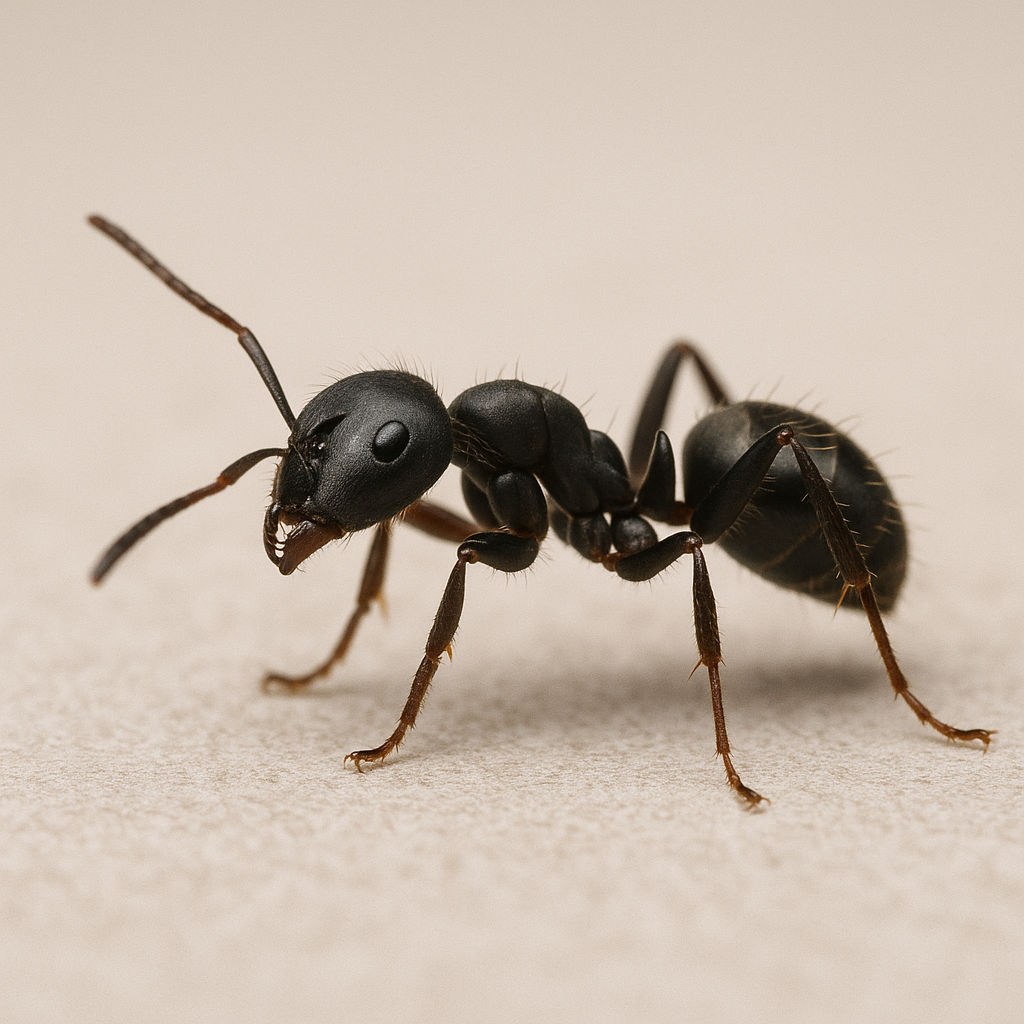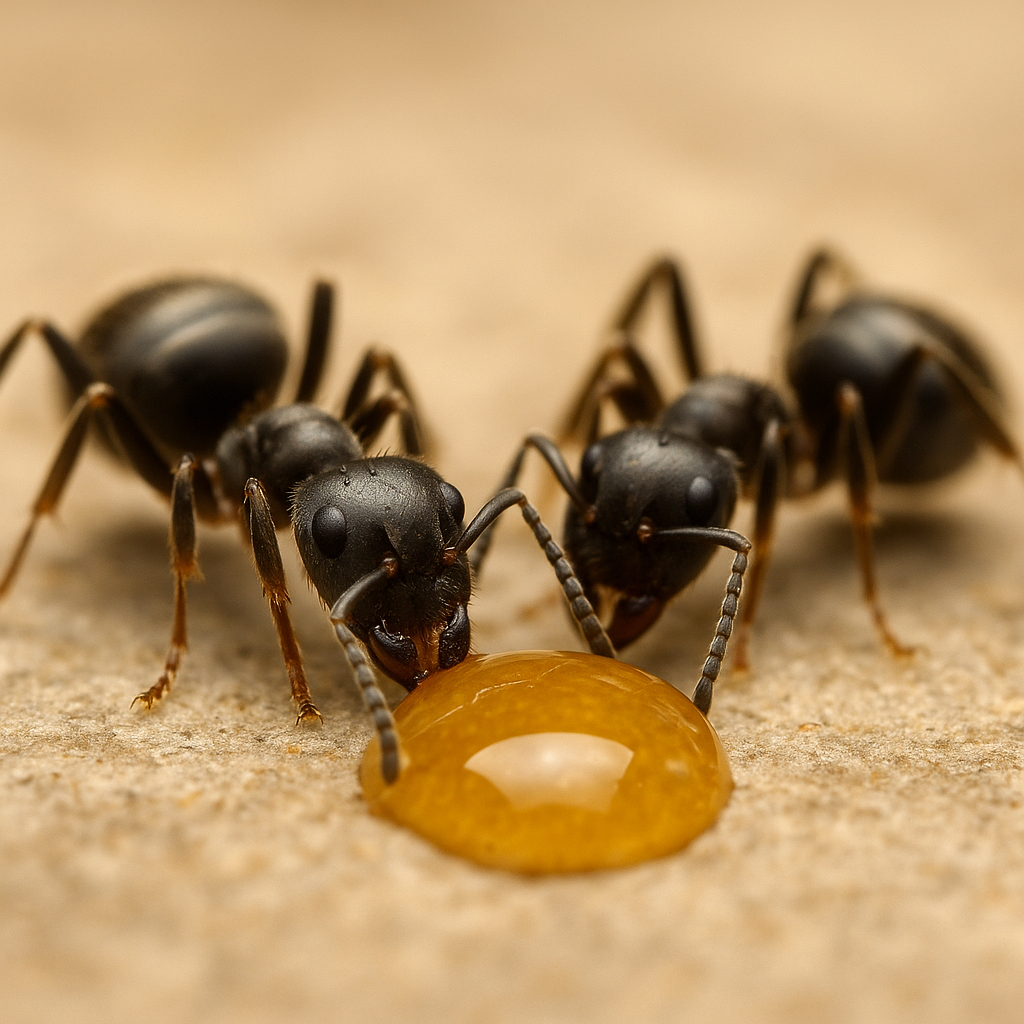Garden Ants (Lasius niger)
The black garden ant (Lasius niger) is one of the most common ants found in UK homes and gardens. They build nests in soil, lawns, under paving slabs, and near foundations.
Although not harmful to health, garden ants quickly become a nuisance when they enter homes looking for food. They are especially attracted to sugary substances, and once one ant finds a food source, it leaves a pheromone trail that leads many more inside.
In summer, colonies produce flying ants during their nuptial flight, which can appear in large swarms and cause concern around properties.
Signs of infestation:
Trails of ants indoors, often in kitchens.
Nests visible in soil or beneath paving.
Sudden swarms of flying ants in warm weather.
Prevention tips:
Keep food sealed and surfaces clean.
Wipe up spills quickly, especially sugary ones.
Block cracks and entry points around the home.
If the problem continues, professional treatment is often the most effective way to eliminate the nest.
Are garden ants dangerous?
No, the common black garden ant (Lasius niger) is not known to spread disease. However, they can contaminate food when foraging indoors, which makes them an unwanted nuisance.
Why do ants come into my house?
Lasius niger ants are usually searching for food, particularly sugary items. Once a worker ant finds it, it leaves a pheromone trail so the rest of the colony can follow.
What are flying ants?
Flying ants are reproductive males and new queens of Lasius niger. They emerge in summer for their annual nuptial flight. While natural, the sudden swarms can be alarming when they gather around homes.
How can I prevent ants?
Keep food in sealed containers, wipe up sugary spills quickly, and seal cracks or gaps around doors, windows, and foundations to limit access.
Do I need professional pest control for ants?
Small problems may be managed with DIY treatments, but established Lasius niger nests often need professional control to ensure the colony is properly controlled.
FAQ


